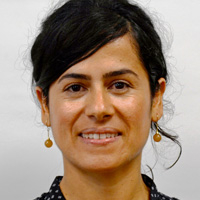Hayriye Gulbudak (University of Louisiana at Lafayette, Mathematics)
ZoomMulti-Scale Models of Infectious Disease Dynamics and Validating with Data The bidirectional feedback induced through population and individual-level infectious disease and host immune dynamics requires development of innovative multi-scale models. In this talk, I will introduce structured nonlinear partial differential equation models linking immunology and epidemiology, along with novel stability analysis and computational tools for …


